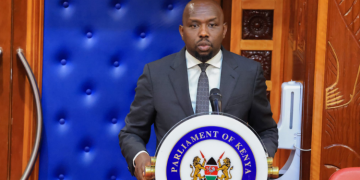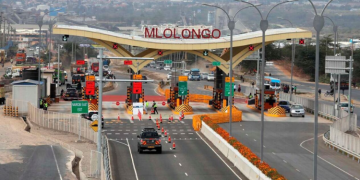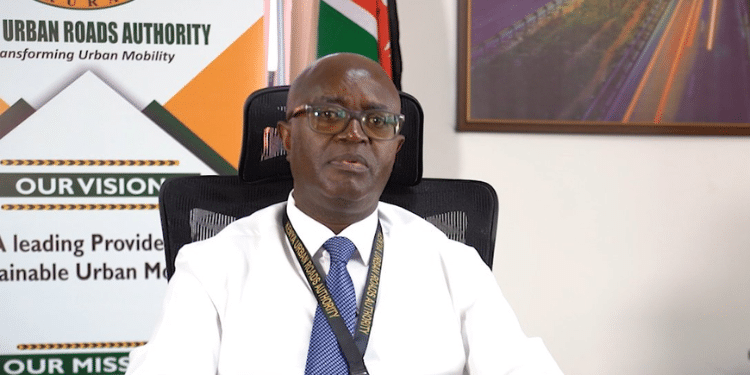Kenya’s political environment has taken a turn in recent months that should be concerning for the nation’s youth, especially since the Gen-Z movement. As the Kenya faces increasing political polarization, economic instability, and governance challenges, the young generation, which makes up a significant portion of the population, should be particularly vigilant. Here are some key reasons why young Kenyans should pay close attention to the current political events:
- Youth Unemployment and Economic Instability
The Kenyan economy has been struggling with rising inflation, public debt, and a slow recovery from the pandemic. The government’s response to these challenges directly affects job creation, public services, and the cost of living.
Young people, who make up a large percentage of the unemployed in Kenya, stand to suffer the most from economic mismanagement.
Political instability and uncertainty only exacerbate these problems, making it harder for the government to focus on policies that could drive economic growth, entrepreneurship, and job creation.
- Stagnation in Governance Reforms
The push for governance reforms in Kenya, which has been ongoing for decades, now appears to be at a standstill.
Corruption and weak institutions continue to plague the country, hindering development efforts.
For young people aspiring to create a better future, this stagnation represents a significant roadblock. With reforms stalled, it becomes more challenging to hold leaders accountable, to secure better healthcare, education, and infrastructure, and to ensure that resources are distributed fairly across the population.

-
Threats to Democracy and Civic Rights in Kenya
Kenya has long been seen as one of Africa’s more stable democracies, but recent political developments have raised concerns about democratic backsliding.
Also Read: President Ruto Must Not Walk Kenya the Guptas Path
Issues like threats to the independence of the judiciary, alleged manipulation of electoral processes, and the curbing of media freedom could undermine the democratic foundations that young Kenyans rely on to express their voices.
For a generation that values transparency, fairness, and political participation, this shift away from democratic norms is particularly alarming.
- Ethnic Tensions and Political Polarization
Kenya’s politics have historically been marked by ethnic divisions, and the recent political landscape has seen an increase in polarization along ethnic lines.
This division threatens national unity and stability. Young people, who are often seen as the driving force behind national cohesion and progress, must be wary of leaders who seek to exploit ethnic tensions for political gain. Continued polarization can lead to social unrest, making it harder for Kenya to move forward as a united nation.
- Lack of Youth Representation
Despite being a majority in terms of population, young people in Kenya continue to be underrepresented in political decision-making.
In addition, the country’s leadership remains dominated by older generations who may not prioritize the needs and aspirations of the youth.
This lack of representation means that policies related to education, employment, and innovation—areas crucial for young people’s development—are often overlooked.
It is essential for young Kenyans to engage more actively in politics to ensure their voices are heard and their concerns addressed.
-
Global Shifts and Local Impact
As the world faces geopolitical shifts, including changes in international relations and economic policies, Kenya is not immune to the ripple effects.
Decisions made by the current government regarding foreign policy, trade, and international partnerships will have long-term impacts on Kenya’s future.
Young people should be particularly concerned about how the country positions itself in the global arena, as this will affect opportunities for international collaboration, education, and employment.
- Climate Change and Environmental Policies
Kenya is already feeling the impact of climate change, with droughts, floods, and food insecurity becoming more frequent.
The current political discourse in Kenya often overlooks or fails to adequately address these pressing environmental challenges.
Young Kenyans should be concerned about how their leaders are preparing the country for a future where environmental sustainability is crucial.
Ignoring these issues could lead to long-term devastation, affecting agriculture, water resources, and livelihoods for millions.
Also Read: Stop Killing Kenyans, Ruto Told
What Can Young People Do?
As the largest demographic group, young Kenyans have the power to influence the country’s political direction. Here’s what they can do:
- Engage in Civic Participation: Join youth movements, participate in discussions, vote in elections, and hold leaders accountable. By staying informed and active in the political process, young people can demand the change they want to see.
- Advocate for Youth Representation: Push for more young people in leadership positions, from local government to national roles, so that the policies enacted reflect the needs and aspirations of the younger generation.
- Promote Unity and Nationalism: Resist the temptations of ethnic-based politics and focus on national unity. Encourage dialogue and collaboration across ethnic lines to foster a more cohesive and inclusive society.
- Stay Informed and Educated: Political awareness and education are key to understanding the implications of policies and political decisions. Stay informed about the issues that matter and educate peers on the importance of active political participation.
Follow our WhatsApp Channel and join our WhatsApp Group for real-time news updates.










































































